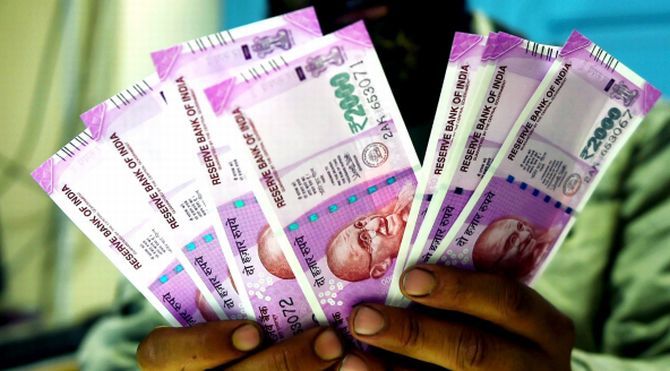 | « Back to article | Print this article |
Priyadarshini Maji evaluates the impact that payment banks are likely to have on your financial life.

Jio Payments Bank has recently started its pilot operations. Reliance Industries owns a 70 per cent stake while the State Bank of India holds the balance 30 per cent in this entity.
The interest rate it will offer on deposits has not been announced yet. We will soon know if Jio's entry into the payment banks space will have the same kind of transformative impact that it had on the telecom sector.
Meanwhile, let us try to evaluate the impact that payment banks are likely to have on your financial life soon.
Account opening in a payments bank is simpler than in a commercial bank. Being paperless, accounts can be opened through e-KYC.
Payments banks also offer zero-balance accounts. Payment banks have also tied up with commercial banks to provide ATM facility.
Most payments banks offer competitive or higher interest rates than commercial banks.
Airtel Payments Bank had begun with an introductory rate of 7.25 per cent on its savings account, which it subsequently slashed to 5.5 per cent.
India Post Payments Bank too offers the same rate.
"Payments banks need to invest 75 per cent of their deposits in eligible government securities, and maximum 25 per cent in fixed deposits of other commercial banks," says Sachin Seth, partner and digital-fintech head, EY India.
Over the past year, the 10-year benchmark government bond yield has ranged between 6.4 per cent and 7.78 per cent (current yield is 7.51 per cent).
Payments banks need to keep their interest rates lower than these levels to earn a margin.
Their rates, however, are attractive compared to the 3.5 per cent to 4 per cent offered by commercial banks.
No charges are levied when you transfer money from a payments bank.
You can do an online fund transfer through Immediate Payment Service (IMPS), Unified Payment Interface (UPI), and National Electronic Fund Transfer (NEFT).
One disadvantage of payments banks is that depositors can't deposit beyond Rs 100,000 in their accounts. They also levy withdrawal charges.
Airtel Payments Bank, for instance, charges 0.65 per cent of the amount withdrawn for transactions above Rs 4000.
To overcome the handicap of not being able to lend to customers, payments banks are entering the digital lending space.
"They are entering this space to leverage their strong customer base. The customer data they possess can be used to give loans, which will be booked at the back end with a bank or an NBFC," says Seth.
FINO Payments Bank has tied up with 12 banks for its lending business. It is also providing remittance and insurance services.
Some payments banks are also getting into the distribution of financial products.
Paytm recently received Sebi approval to sell mutual funds while it has applied with IRDAI to sell life and general insurance products.
Payments banks including Airtel, Jio and Paytm have received licences to offer foreign exchange (forex) services.
"With these forays, payment banks are aiming to become full financial service super-markets," adds Seth.
Many players that offer mobile wallets are planning to merge them with their payments bank accounts soon. The offers and discounts provided by the wallets will continue.
"With wallets going out of business due to stringent KYC requirements, payments banks are set to take over from them," says Seth.
Adds Shailesh Pandey, EVP & head (strategy & marketing), Fino Payments Bank: "Using a payments bank, customers will get the same range of products and services as with a mobile wallet, and more: Utility bill payments, domestic remittances, life and health insurance, gold loans, and funds transfer."
Photograph: Reuters